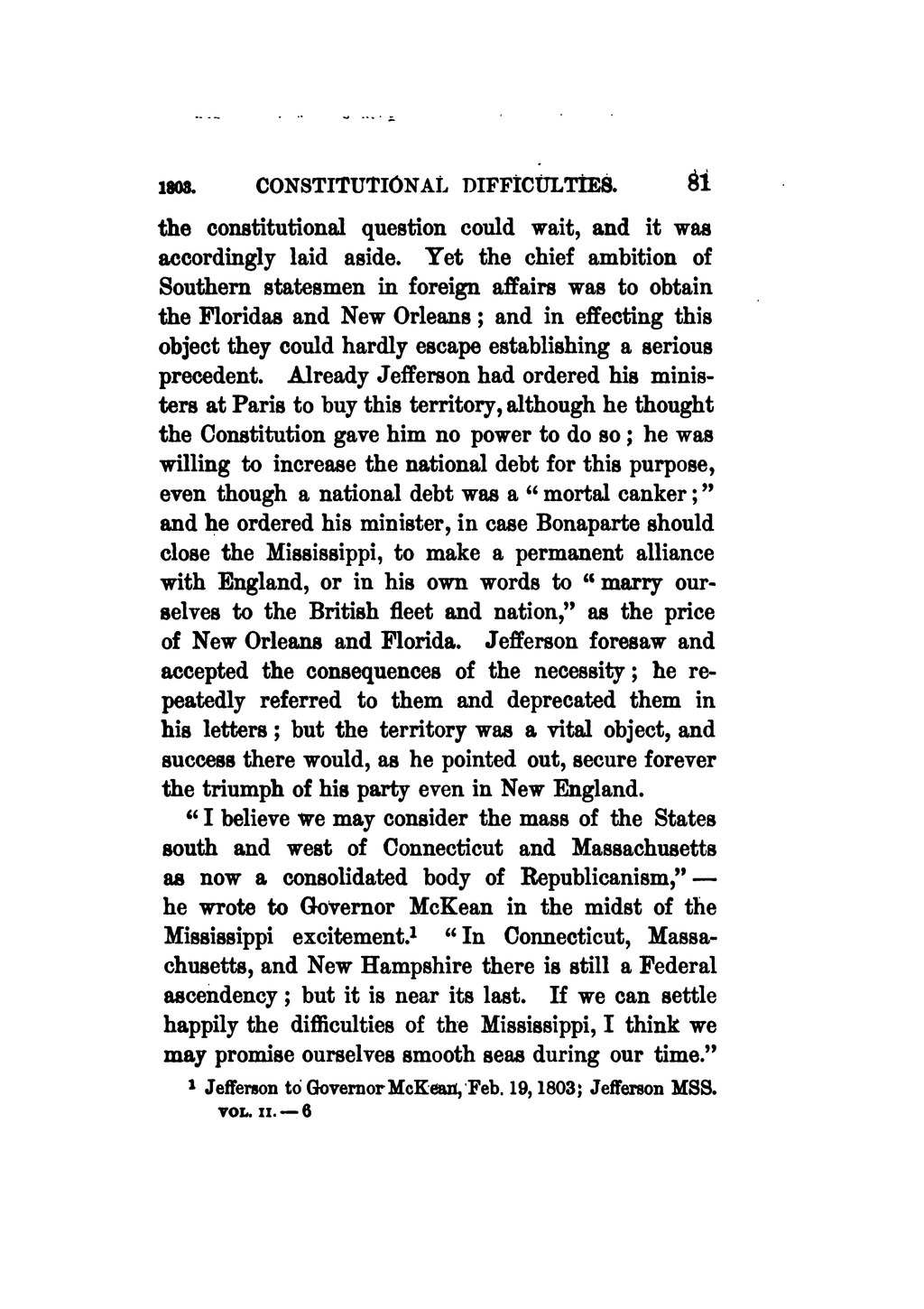the constitutional question could wait, and it was accordingly laid aside. Yet the chief ambition of Southern statesmen in foreign affairs was to obtain the Floridas and New Orleans; and in effecting this object they could hardly escape establishing a serious precedent. Already Jefferson had ordered his ministers at Paris to buy this territory, although he thought the Constitution gave him no power to do so; he was willing to increase the national debt for this purpose, even though a national debt was a "mortal canker;" and he ordered his minister, in case Bonaparte should close the Mississippi, to make a permanent alliance with England, or in his own words to "marry ourselves to the British fleet and nation," as the price of New Orleans and Florida. Jefferson foresaw and accepted the consequences of the necessity; he repeatedly referred to them and deprecated them in his letters; but the territory was a vital object, and success there would, as he pointed out, secure forever the triumph of his party even in New England.
"I believe we may consider the mass of the States south and west of Connecticut and Massachusetts as now a consolidated body of Republicanism,"—he wrote to Governor McKean in the midst of the Mississippi excitement.[1] "In Connecticut, Massachusetts, and New Hampshire there is still a Federal ascendancy; but it is near its last. If we can settle happily the difficulties of the Mississippi, I think we may promise ourselves smooth seas during our time."
- ↑ Jefferson to Governor McKean, Feb. 19, 1803; Jefferson MSS.
